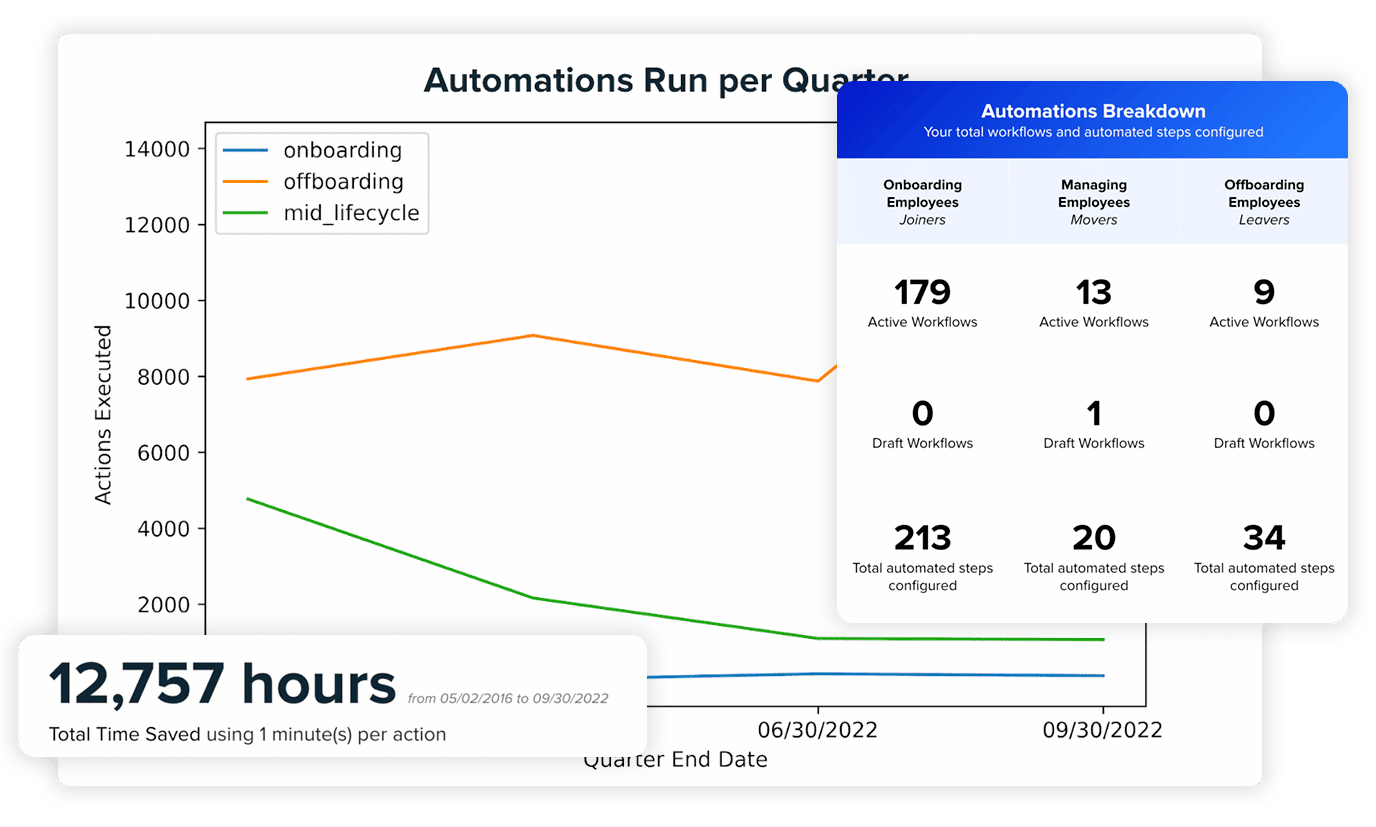Use data to drive your decisions
Increase the visibility around your SaaS apps and unlock new insights with our comprehensive reporting and alerting capabilities.

Better allocate your SaaS spend
Identify and consolidate redundant applications and eliminate unused licenses to improve cost efficiency.

BetterCloud saves us a lot of money because we’ve run into holes before where we're over licensed.”
Jon Aviles
Senior IT Identity Management Engineer, Ibotta



Benchmarking Assessment
Gain deep insight into your SaaS environment to support data-driven decision making.
Detailed analysis of the apps, users, files, & workflows being managed by BetterCloud.
Actionable insights enable you to streamline operations, improve employee experience, and protect your data.
Compare your data to your industry peers.
Reduce your security risk
Realize more effective threat remediation by quickly discovering sensitive data and getting alerted immediately for unwanted public file sharing.
Identify suspicious behavior
Support internal compliance policies
Easily audit for data oversharing exposure


